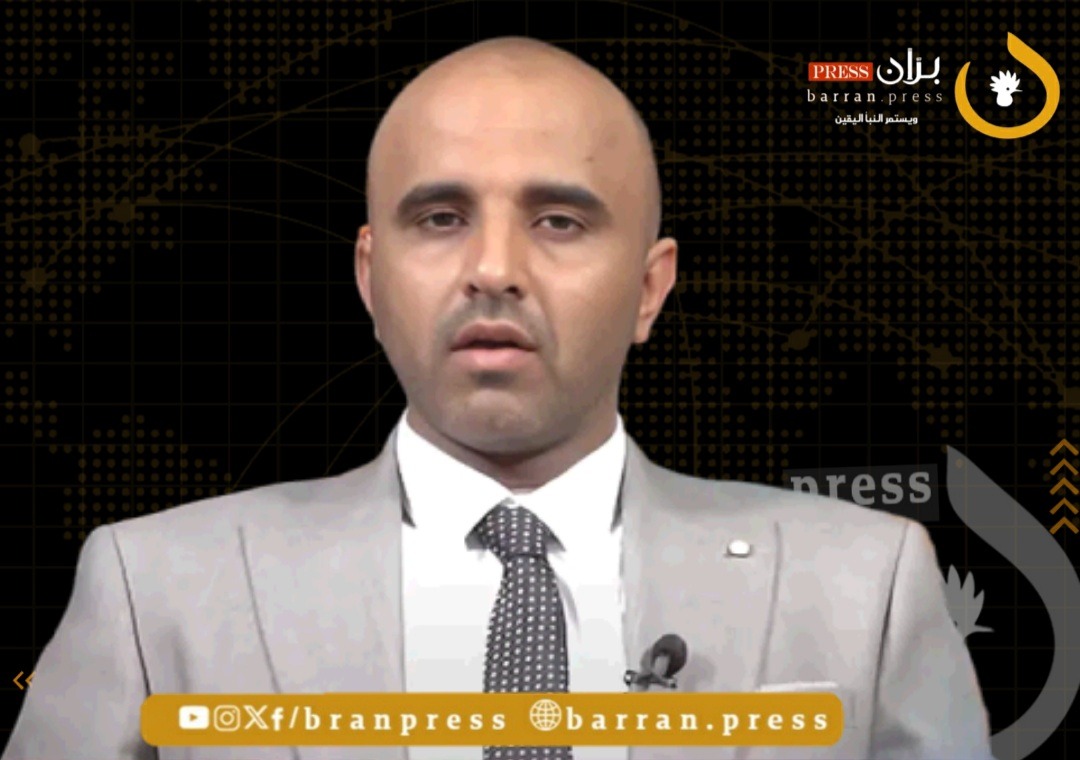


Barran Press
Sana'a, Yemen - In an exclusive interview with "Barran Press" on Sunday, May 19, 2024, Yahya Kazman, the leader of the government delegation responsible for negotiating the release of prisoners and abductees, highlighted the significant stumbling block hindering progress in UN-mediated talks. Kazman emphasized that the abduction of Yemeni politician Mohammed Qahtan by the Houthi rebels in April 2015 posed the "primary obstacle" to resolving the complex issue of prisoners, detainees, and abductees.
Kazman revealed that the government delegation had received explicit instructions from the political leadership, including the President of the Presidential Leadership Council and council members, not to engage in negotiations with the Houthis or consider their demands regarding prisoners and abductees until a resolution was reached regarding Qahtan's situation.
Highlighting the urgency of the matter, Kazman emphasized that Qahtan was the last remaining individual among those covered by UN Security Council Resolution 2216 still in Houthi custody. He had languished in captivity for nine years, and his fate remained unknown. The government delegation not only demanded information about Qahtan's well-being but also called for his immediate release, along with all other abductees. These directives reflected the political leadership's stance on the matter.
Kazman reiterated that the government had consistently maintained its position, advocating for the release of Qahtan and his fellow detainees covered by UN Security Council Resolution 2216. However, he accused the Houthi group of wielding this resolution as a "bargaining chip" to exert pressure on the international community and the legitimate government.
The head of the government negotiating delegation underscored the Houthi group's continued use of pressure tactics against Qahtan, a politician forcibly hidden by the rebels. Kazman expressed dismay at the Houthis' persistent efforts to include Qahtan in the final stages of negotiations, citing non-existent names as a deliberate attempt to sabotage the talks.
Regarding the motive behind the Houthis' insistence on concealing Qahtan, Kazman explained that they regarded him as a potent card to exert pressure on both the legitimacy and the Islah Party. Qahtan's significant standing and respect among the Yemeni people, regardless of their political affiliations, made him a target for the Houthis' manipulative tactics.
Kazman expressed criticism of UN Security Council Resolution 2216, stating that the government delegation did not place much reliance on it. He also voiced concerns about the United Nations and the international community, who issued resolutions that the militias, unyielding and indifferent to international mandates, chose to disregard.
Appealing to the United Nations, the international community, and the Red Cross, Kazman urged them to shoulder their moral responsibility and exert substantial pressure on the Houthis to secure the release of politician Qahtan.
On April 14, 2015, the UN Security Council issued Resolution 2216, urging the Houthis to release four prominent Yemeni military and political figures, including Mohammed Qahtan. While three of them were eventually freed in April 2023 as part of a prisoner and detainee exchange facilitated by the United Nations, the Houthi group stubbornly retained Qahtan, refusing even to disclose his fate.
On June 4 of the same year, Rashad al-Alim, the head of the Presidential Leadership Council, held the United Nations accountable for implementing its resolutions concerning Yemen, particularly the resolution demanding the release of politician Qahtan from Houthi captivity. In August 2023, during a meeting with the UN Special Envoy to Yemen, Hans Grundberg, al-Alim emphasized the urgent need to ascertain Qahtan's fate before engaging in any further consultations.